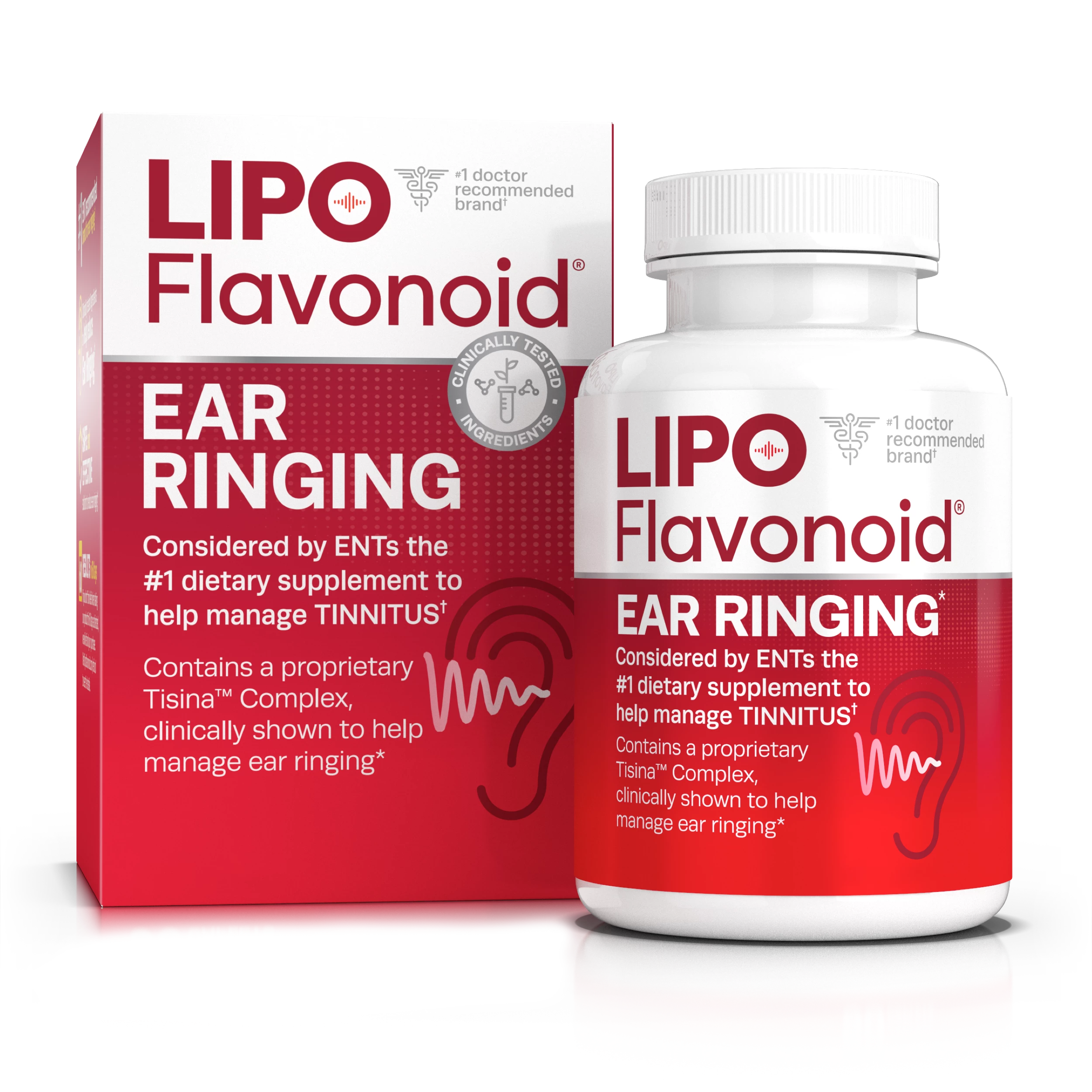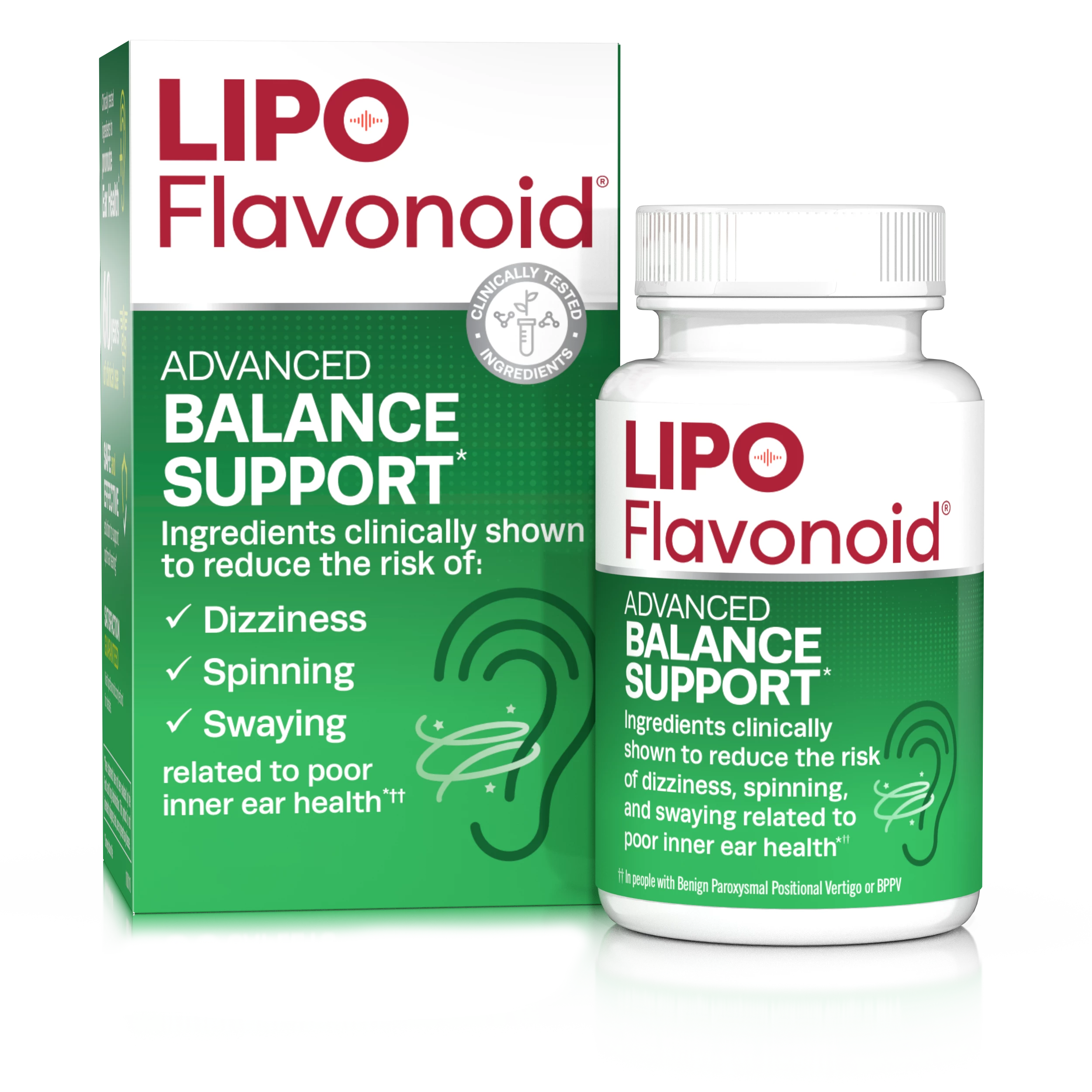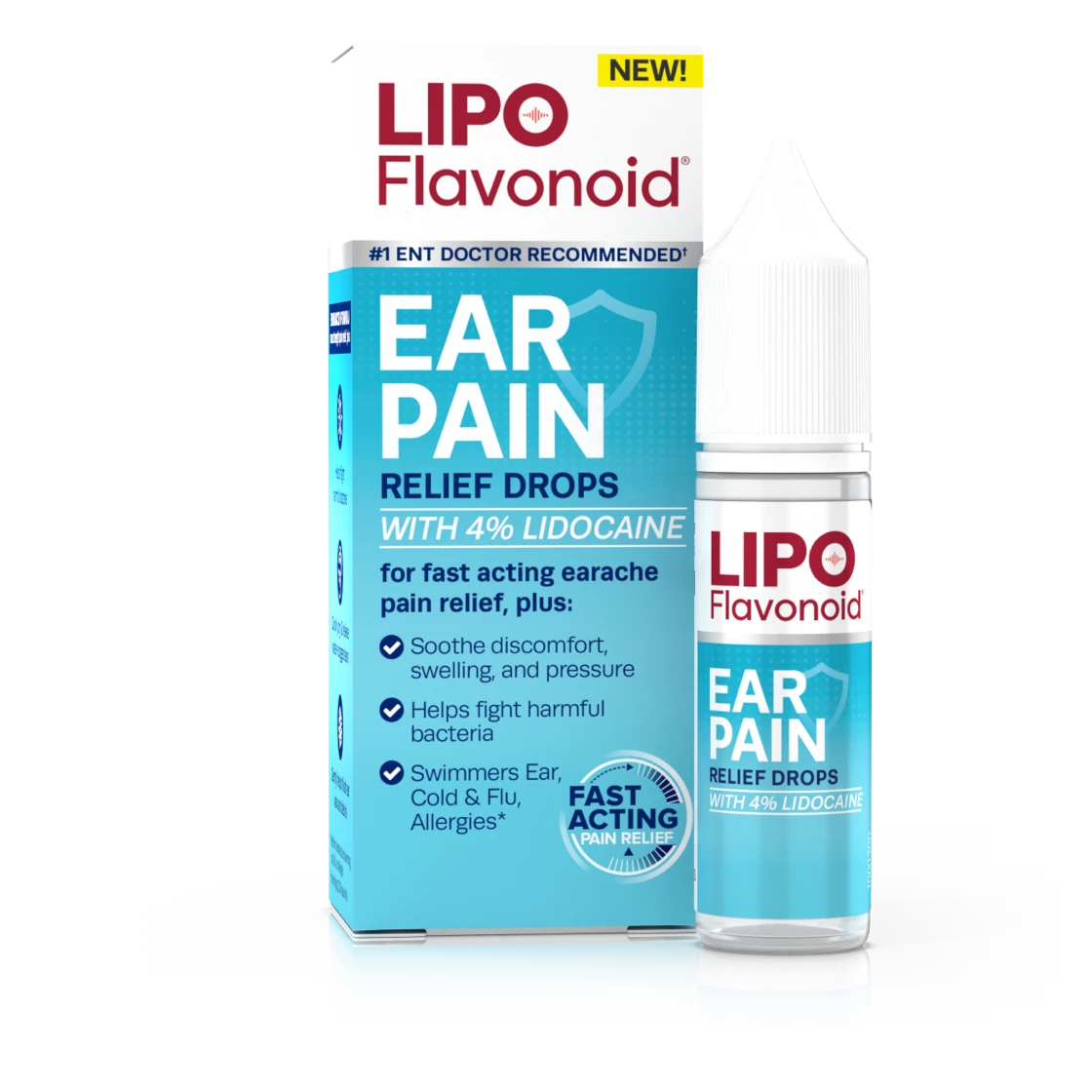Wondering About Tinnitus and COVID-19 Vaccines? Get the Facts
This article is brought to you by Lipo-Flavonoid the expert in Ear health. In this edition of Ringing True, our team discusses COVID-19 vaccines and tinnitus.
Six patients out of 19,630 receiving the Johnson & Johnson/Janssen COVID-19 vaccine during its Phase 3 clinical trials reported experiencing new tinnitus symptoms. For five of them, the ringing in the ears went away or was improving by the end of the trial. The FDA has said it is possible the vaccine was a factor, but no one is really sure.
Drugs Discovery & Development, a pharmaceutical industry news website, reports that people have also been saying that they developed tinnitus after the Pfizer-BioNtech and Moderna COVID-19 vaccines and that the U.S. Vaccine Adverse Event Reporting System (VAERS) database has approximately 150 reports of tinnitus among more than 25,072 COVID-19 vaccine recipients. This makes tinnitus linked to one of these COVID vaccines very rare (with just a 0.6% occurrence rate); that’s much more rare than tinnitus associated with a COVID-19 infection itself.
According to research published in the International Journal of Audiology, 13% of patients reported a change in hearing and/or tinnitus after being diagnosed with COVID-19. Similarly, among those already living with tinnitus, a global study found that 58% who developed COVID-19 had an increase in the severity of their tinnitus.
In general, tinnitus sufferers have rated their tinnitus more bothersome during the pandemic than before, even if they never caught COVID. This could be because of all the life changes and stress the pandemic has caused, including worry, isolation, grief, depression, frustration, anger, sleep disturbances, job loss, increased consumption of alcohol, and decreased exercise.
With all Americans over the age of 16 are now eligible to receive COVID-19 vaccination, it’s hoped that these rare cases of tinnitus being associated, by some, with vaccination won’t dissuade those who are able to get vaccinated to do so; the risk of serious health consequences from COVID-19 infection outweigh rare potential reactions. Recently a public health expert from Dartmouth Geisel Medical School told National Public Radio (NPR) that we don’t really know whether tinnitus symptoms are linked to the COVID vaccines at all. Similarly, a chief of infectious diseases at the Jacobs School of Medicine and Biomedical Sciences at the University at Buffalo noted that the frequency of these types of symptoms is low. Both experts agree that such rare issues should not make people hesitant to get vaccinated saying, “For the vast majority of people, the side effects of vaccination are mild and they’re worth the price of bringing a quicker end to this crisis.”
For help finding vaccination options near you, visit the Centers for Disease Control and Prevention (CDC).
While the exact causes of Covid-19 related tinnitus are unknown, if you suffer from this bothersome symptom, you should talk to your doctor about options. If you are experiencing tinnitus or ringing in the ears, for any reason, know that you are not alone, and that help is available.
If your tinnitus symptoms are new, talk to a specialist, such as an ear, nose, and throat physician (an ENT or otolaryngologist) or an audiologist. Some causes of tinnitus can be modified and sometimes there is an underlying medical condition going on that should be treated in order to help with tinnitus.
Lowering your stress levels can be helpful, too. Stress reduction strategies can help to keep your blood vessels healthy and improve your general well-being, which, in turn, can help to improve your tinnitus symptoms and your ability to deal with them. One important way to help lower your stress during this pandemic is, of course, to get vaccinated against COVID-19 as soon as you are able to do so. Even planning your vaccination strategy can be beneficial because hope that the end is near and that recovery is possible is a powerful de-stressor.
Your doctor may recommend a nutritional supplement to support ear health. With consistent use as directed, the nutrients in Lipo-Flavonoid® Plus have been shown to improve tinnitus in some people.1-7 Lemon bio-flavonoids, like those in Lipo-Flavonoid® Plus, are thought to help relieve tinnitus by:
- Improving microcirculation in the inner ear1,8
- Preventing abnormal accumulation of fatty deposits8,9
- Blocking histamine production in the inner ear, a likely cause of inner ear disturbances3
According to a survey of 250 ear, nose, and throat specialists (otolaryngologists), 100% recommend nutritional supplements to their tinnitus patients and 85% recommend the brand Lipo-Flavonoid® specifically.10
Looking for more tinnitus management ideas and other useful information about living with tinnitus? We’re happy to help! Coupons are available, too. We also recommend subscribing and saving with Amazon.
References
3. Arenberg I, Bayer R. Therapeutic Options in Meniere’s Disease. Arch Otolaryngol 1977;103: 589-93.
5. Herschberg S. Meniere’s disease. J Am Osteopathic Association 1974; 73:540-6.
6. Wolfson R. Treatment of Meniere’s disease. Modern Treatment (1969) 6,3, 553-567.
7. Williams, H.L. & Hedgecock, L.D. Citrus Bioflavonoids, Ascorbic Acid and Other B-vitamins in the Treatment of certain types of neurosensory deafness a preliminary report”. Staff meeting of the Mayo Clinic (1962)
8. Rubin W. Vestibular suppressant drugs. Arch Otolaryngology 1973; 97:135-8
9. Kumar S, Pandey AK. Chemistry and Biological Activities of Flavonoids: An Overview. The Scientific World Journal. 2013;2013:162750. doi:10.1155/2013/162750.
10. April 2016 Survey. Clarion Brands Inc. Data on file.


